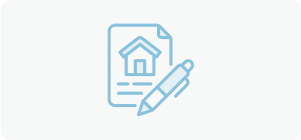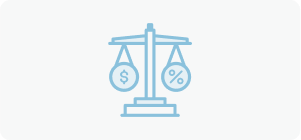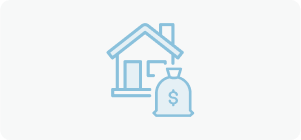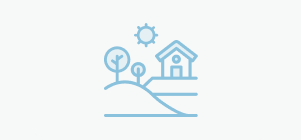



Many people find themselves struggling with debt payments. High-interest credit cards, medical bills, and personal loans can compound and make your finances difficult. If you have a lot of debt, the monthly payments can be overwhelming. One way to obtain a fresh financial start is to consolidate your debts. When you consolidate your debts, you will have a new loan that allows you to repay your high-interest debts and replace multiple payments with a single one at a lower interest rate.
Some people choose to refinance their mortgages to consolidate their debts. Since mortgage interest rates are much lower than those of credit cards and other types of debt, this can be a great strategy to pay off your debts while saving money. If you are considering a debt consolidation loan and would like to investigate the possibility of a debt consolidation refinance mortgage in Utah, here is some information from the mortgage professionals at City Creek Mortgage that might be helpful.
When you consolidate your debts into a single loan, it should make your monthly payments more affordable. The goal of debt consolidation is to replace high-interest debt with a low-interest loan. Borrowers seeking to consolidate their debts typically want to pay as little interest as they can on the loan they use to repay their high-interest debts.
In most cases, high-interest debt is unsecured, which means it isn’t secured by any collateral. For example, most credit card debts are unsecured, which means that lenders can’t repossess physical property if you default. This is one reason why the interest rates can be so high.
People can quickly become overwhelmed by high-interest debts when they have multiple credit cards and payments going to several lenders every month. Debt consolidation can be worthwhile if you have a good credit score and a steady income and want to make your monthly debt payments more affordable. Since mortgages have much lower interest rates than most types of unsecured debts, consolidating your debt payments by rolling the balances into a new refinance mortgage can save you a significant amount of money on your borrowing costs.
The reason why people seek debt consolidation loans is to lower the interest rates on their debt payments and replace multiple payments with a single one. Rolling high-interest credit cards, personal loans, and medical debt into a mortgage refinance can provide a way to benefit from the lower rates these types of loans provide. When you compare average mortgage rates vs. the high rates of interest charged by most credit card companies, you can see how a Utah debt consolidation refinance might be a good option to consider.
One option for people who want to consolidate debts in Utah is to get a cash-out refinance mortgage. When you have enough equity in your home and are approved for a cash-out refinance mortgage, you will replace your existing mortgage with a new loan for a higher amount. You’ll receive the difference between your new loan and your pre-existing one in a lump sum at closing. You can then use the money to repay debts and effectively consolidate your debt payments into your mortgage loan.
When you get a cash-out refinance mortgage, you don’t have to use all of the money you receive to consolidate your debts. Instead, you can consolidate your debts with a portion of the proceeds and use any remaining money for other purposes, including paying your child’s college tuition, renovating your home, etc.
Cash-out refinance mortgages are a way for borrowers to convert the equity they have in their homes to cash. They will then have a new mortgage with a higher loan balance. However, if you choose this option, you won’t be able to access all of the equity you have built in your home. Lenders typically want borrowers to leave 20% equity in their homes to protect themselves. If you have substantial equity in your home, however, tapping into it might be a good way to pay off your debts while reducing your borrowing costs.
When you repay your debts by using cash from a Utah cash-out refinance loan, you could be left with a single monthly debt payment to pay each month, which would be your new monthly mortgage payment. This payment should carry a significantly lower rate of interest vs. what you were paying for your credit cards.
If you have several types of debt, including student loans, credit cards, medical bills, personal loans, and others, you could use cash from your cash-out refinance to pay any of them. However, if you want to become debt-free more quickly, you should prioritize your high-interest debts. Any money that you save by repaying those first can then be used to pay down other debts that are also lower interest, including auto loans or student loans.
You should also keep in mind that when you refinance your mortgage to consolidate your debts, the process will involve paying new closing costs. These costs might be up to 5% of the new, higher amount of your mortgage.
This makes it important to find a refinance mortgage offering an interest rate that is low enough to allow you to recoup your upfront expenses while saving money on interest. In many cases, you can roll the costs of refinancing into your new loan. However, you will want to ensure you will still have enough money remaining to repay your high-interest debts if your goal is debt consolidation.
Finally, once you consolidate your debts through a cash-out refinance, take care not to run up your balances again on your credit cards.
When you get a debt consolidation refinance mortgage in Utah, you’ll lower the interest rate you have to pay on your higher-interest debts by rolling them into the loan. Doing this could save you a lot of money over the long term.
For example, if you have four credit cards with interest rates of 20% or higher that are maxed out, you might never pay them off if you only can make the minimum payments. If you can instead consolidate them into a refinance mortgage with an interest rate of 7%, you would save a lot of money. You could then use the money you save and apply it to the principal of your new mortgage and repay all of your debt faster.
Another advantage of a Utah debt consolidation refinance loan is that you can refinance at a fixed interest rate, making your monthly payments predictable. You can also change how many years you have to repay your loan.
When you consolidate your debt with a cash-out refinance, it can improve your credit score by lowering how much credit you are using. Your credit utilization ratio is factored into your credit score calculation.
Finally, you might be able to claim a deduction for your mortgage interest on your income taxes. By contrast, you can’t deduct interest payments on your credit card debt.
If you would like to learn more about consolidating your debt through a refinance mortgage in Utah, you should speak with the mortgage professionals at City Creek Mortgage. Call us today to schedule a free consultation at (801) 501-7950.



